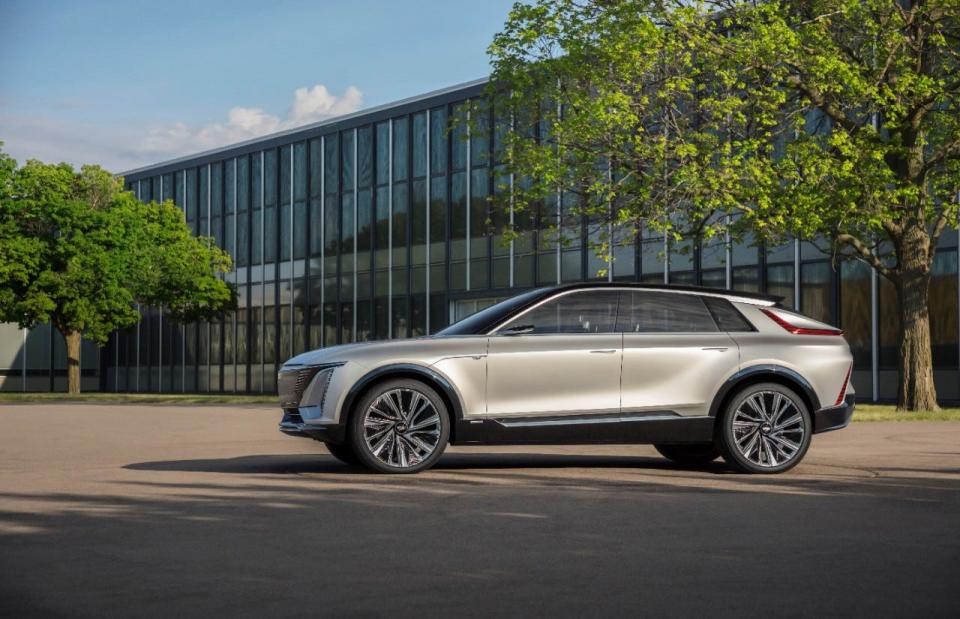Tesla's 'Battery Day' is Elon Musk's chance to fend off competition from GM's novel Ultium design

Paul Hennessy/SOPA Images/LightRocket via Getty Images
Investors and analysts have their eyes on Tesla's 'Battery Day' on Tuesday, anticipating some major announcements.
CEO Elon Musk and his team could have some surprises in store, but with new car factories operating, planned, or under construction on three continents, the critical issue to address is battery supply.
Meanwhile, General Motors has been promoting its own, competing Ultium technology since the beginning of 2020.
Tesla and GM are using different battery designs, but thus far, only GM has treated its batteries as a distinctive brand.
Tesla is holding an annual shareholders meeting and a much-anticipated "Battery Day" on Tuesday, with investors and analysts expecting some big announcements from the company. Musk has promised "many exciting things" and a "very insane" event.
Batteries and battery management technologies are the most important aspect of electric vehicles. The lack of batteries that could deliver performance, range, and cost on par with gas engines is what kept EVs from being competitive for a century — and can still hold them back now.
Tesla cracked the code by pursuing an idiosyncratic design that was enabled by the rise of the consumer electronics industry: thousands of cylindrical lithium-ion cells, wired together in packs. That setup has been the key to Tesla's success, but it also imposes a fundamental restraint. The carmaker can only build as many vehicles (or storage systems, through its Tesla Energy subsidiary) as it can generate battery cells to power them.
Tesla has partnered with Panasonic to mass-produce cells at its Nevada Gigafactory, but with a new auto plant online in China and two more planned for Germany and Texas, Tesla will need to address a battery supply chain that could soon come under stress.
Battery day is all about supply

GM
This is really the most important thing that CEO Elon Musk and his team have to address on Tuesday. Sure, there could be announcements around advanced battery tech or a "million-mile" battery, but the big deal is cell supply, and how Tesla intends to expand production while delivering hundreds of thousands of additional cars.
Meanwhile, a competitive design has entered the market. Earlier this year, General Motors showcased its Ultium battery technology at an event near Detroit. This spring, the automaker — which plans to launch 22 new electrified vehicles by 2023 and has a deal with suddenly embattled Nikola — and battery partner LG Chem formed a joint venture to produce batteries at a $2.3 billion factory in Ohio.
In lieu of Tesla's cylindrical cells, Ultium is a pouch design. Each has its advantages and disadvantages, but Tesla has been wedded to cells since its first vehicle, the original Roadster, introduced a decade ago. GM has adopted the pouch approach and used it on several electrified and all-electric vehicles, including the Chevy Volt hybrid and the Chevy Bolt EV.
For GM, the pouch design offers better modularity — it can be used for a range of different vehicles, each with different use cases. For Tesla, the cell design was the best option available more than ten years ago and has enabled the company to build up significant EV market share, selling over 350,000 vehicles last year and targeting half a million or more in the immediate future.
Teslas are fast and can travel about as far as many gas-powered vehicles on a single charge, so the cell design has paid off there. But Teslas are also expensive, and Musk has insisted that the price needs to come down for the company to succeed in its overarching mission to end the fossil-fuel era. The best way for Tesla to do that is to subtract costs from the EV's priciest component.
So the takeaway from battery day will probably be, "More and cheaper!" Musk could also talk about the trickiest aspect of the battery business, which is securing enough rare earth elements to manufacture them at scale. GM has already said that it hopes to reduce or eliminate the cobalt it uses for its technology.
Making batteries part of the brand

Cadillac
On another front, Tesla needs to make batteries a more exciting part of its story. GM has done that with Ultium — so much so that some Wall Street analysts think the company should spin off the Ultium business as a separate company.
That's a Detroit move: General Motors has technology in its name and more than a hundred years of gearheading in its DNA. Tesla's angle has been more Silicon Valley: the package — in this case, cars — matters more than what's providing the juice. When it comes to an iPhone, all anybody cares about is how long the battery lasts. Where it comes from and how it's assembled is irrelevant.
In other words, GM wants customers to think about its EV's battery and why it matters, while Tesla doesn't. Or hasn't, anyway, until now.
This means that battery day is as much a branding opportunity as it is a technology review. And it's about time. Tesla has captured phenomenal mindshare and created a stunning stock market valuation on cool vehicles that customers love and that symbolize daring ingenuity.
But Tesla has left a lot on the table by rarely touting its own, innovative battery systems. After this week's event, however, those days are over.
Read the original article on Business Insider

